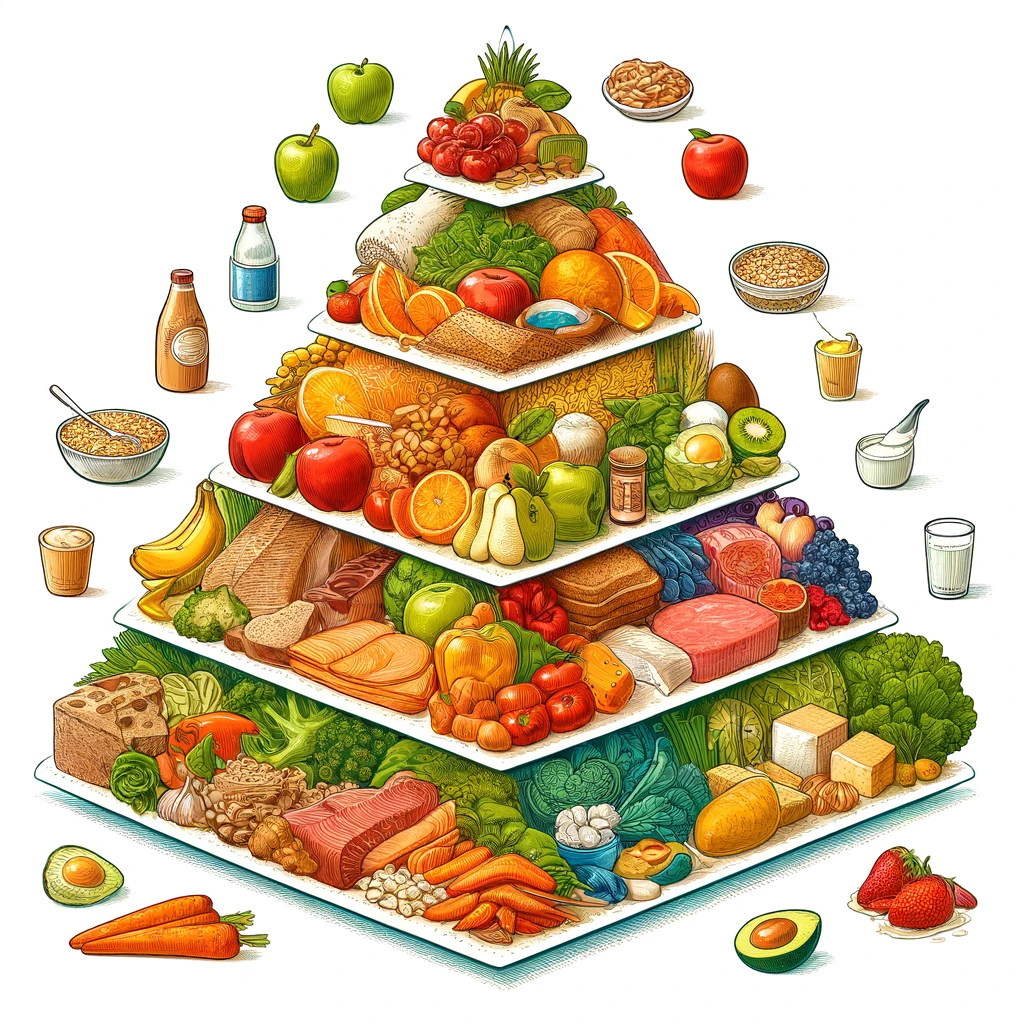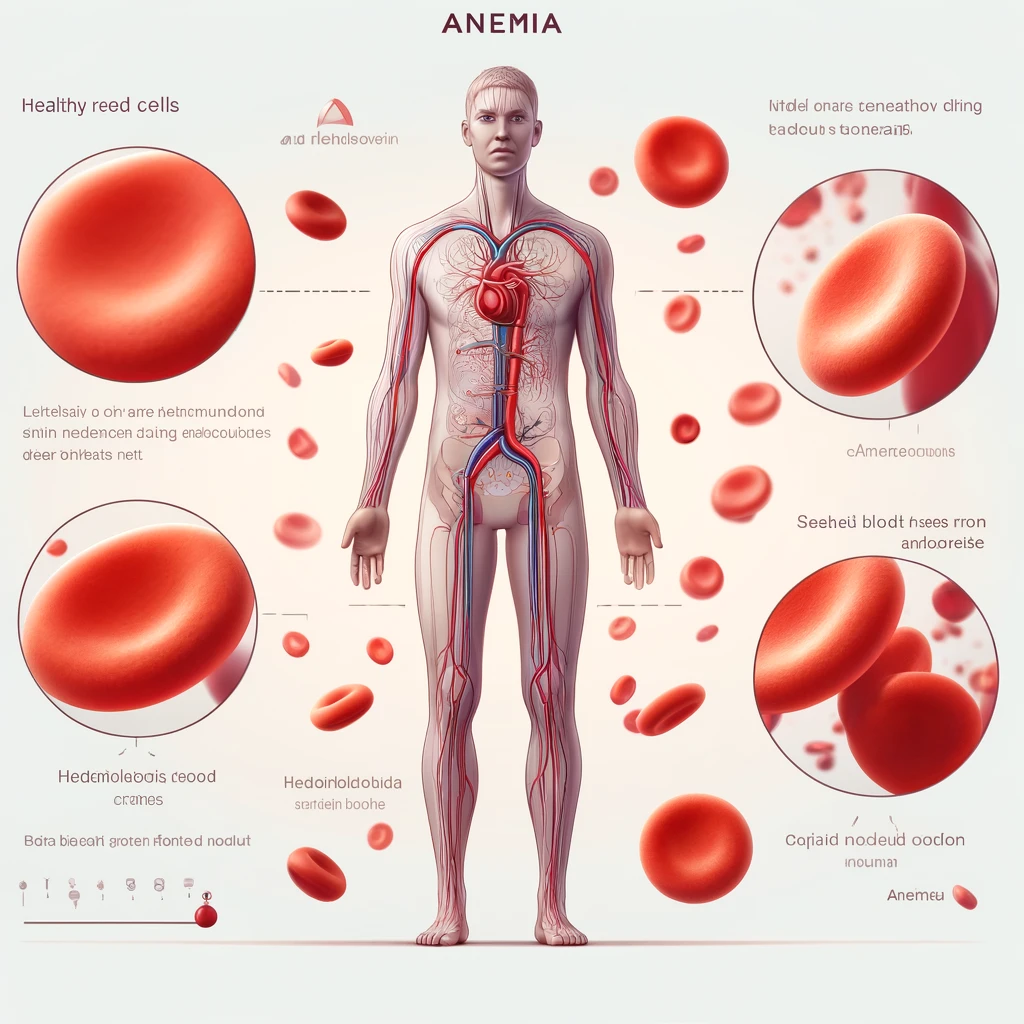Discover the importance of protein in your diet and find out exactly how much protein an egg contains. Protein is an essential macronutrient for the body, performing vital functions in our body. It is important for the construction and maintenance of tissues, muscles, skin and hair. Furthermore, the protein is responsible for the production of enzymes, hormones and antibodies, contributing to the proper functioning of the immune system. A food that is a source of protein and extremely popular is eggs. In addition to having a significant amount of protein, eggs are a source of essential amino acids, which are fundamental for the proper functioning of the human body. Egg whites are especially rich in protein, while the yolk contains healthy fats and other important nutrients. If you're looking for a high-quality source of protein, eggs are an excellent option. Eating eggs regularly can contribute to building muscle, controlling weight and maintaining overall health. Therefore, if you want to know exactly how much protein an egg contains and understand the importance of this nutrient, keep reading this article.
Index
- Introduction
- What Are Proteins?
- The Nutritional Value of Eggs
- Amount of Protein in an Egg
- Health Benefits of Egg Protein
- Comparison With Other Protein Sources
- How to Include Eggs in your Diet
- Egg Consumption Recommendations
- Myths and Truths About Egg Consumption
- Sustainability in Egg Production
- Frequently Asked Questions About Protein and Eggs
- Tips for Buying and Storing Eggs
- The Role of Eggs in Specific Diets
- Recent Studies on Eggs and Nutrition
- Conclusion
What Are Proteins?
Proteins are macromolecules composed of chains of amino acids and perform several vital functions in the body. There are twenty different amino acids that can form a protein, and the sequence in which they join together determines the structure and function of the protein. Nine of these amino acids are considered essential, meaning they must be obtained through the diet, as the body is unable to produce them. Egg protein is highly valued for containing all essential amino acids in ideal proportions for human consumption.
The Nutritional Value of Eggs
In addition to being an excellent source of high-quality protein, eggs are rich in vitamins, minerals and good fats. A medium egg contains about 6 to 7 grams of protein, with just 70 to 80 calories. Most of the egg's protein is in the white, while the yolk is rich in nutrients such as vitamins A, D, E, and B12, riboflavin, selenium and choline. This combination of nutrients makes eggs an extremely nutritious food and an excellent addition to any diet.
Amount of Protein in an Egg
A medium-sized egg, weighing approximately 50 grams, contains about 6 to 7 grams of protein. The protein distribution is uneven between the white and the yolk; Egg whites contain about 4 grams of protein, while egg yolks provide approximately 3 grams. Egg protein is considered one of the most complete and nutritious, containing all nine essential amino acids in proportions suitable for our body.
Health Benefits of Egg Protein
The proteins contained in eggs offer multiple health benefits, including supporting muscle development, maintaining healthy skin, producing hormones and enzymes, and promoting a feeling of satiety. Regular consumption of eggs can contribute to weight loss, as the protein has a high thermogenic effect and can increase metabolism. Furthermore, eggs are an accessible and versatile source of protein, making them an excellent option for varying protein sources in the diet.
Comparison With Other Protein Sources
When comparing eggs to other protein sources, it is important to consider not only the quantity of protein, but also the quality and presence of essential amino acids. Proteins of animal origin, such as meat, fish and dairy products, are complete, as are those from eggs. However, eggs stand out for their balance between protein quality and calories. Plant-based sources of protein, such as legumes and grains, are important, but they often need to be combined to provide all the essential amino acids. Eggs, therefore, represent a practical and nutritious option to meet daily protein needs.

How to Include Eggs in your Diet
Eggs can be included in the diet in different ways, thanks to their versatility. They can be cooked, fried, poached, stirred or used as ingredients in various recipes, such as omelets, quiches, salads and even some desserts. For those concerned about caloric intake or cholesterol, consuming only egg whites may be an alternative, although the yolk is rich in essential nutrients. Incorporating eggs into breakfast is an excellent way to start the day with a high-quality source of protein, promoting satiety and avoiding unnecessary snacks before lunch.
Egg Consumption Recommendations
The amount of eggs that can be consumed varies depending on individual health needs, physical activity levels and dietary restrictions. Generally speaking, most health guidelines suggest that consuming up to one egg per day is safe for most people. However, it is always recommended to consult a healthcare professional or nutritionist for personalized advice, especially for those with specific conditions such as high cholesterol or diabetes.
Myths and Truths About Egg Consumption
Over the years, eggs have been the target of many health-related myths, especially regarding cholesterol. Recent research shows that for most people, moderate egg consumption does not have a significant impact on blood cholesterol levels or heart disease risk. Another common myth is the risk of salmonella poisoning, which can be minimized by consuming fresh, well-cooked eggs. It is important to rely on up-to-date, scientifically proven information when considering eggs in your diet.
Sustainability in Egg Production
Egg production has environmental impacts that vary according to breeding and management practices. Choosing eggs from farms that adopt sustainable and ethical practices, such as free-range or organic farming systems, can contribute to reducing environmental impact. These farms often employ methods that promote animal welfare, use fewer natural resources and reduce the use of chemical additives. Choosing eggs certified by sustainability seals also helps to encourage the adoption of these practices by the poultry industry.
Frequently Asked Questions About Protein and Eggs
- How many grams of protein are in an egg? One medium egg contains approximately 6 to 7 grams of protein.
- Can I eat eggs every day? Yes, most people can consume one egg a day without health concerns, but it is recommended to consult a healthcare professional for personalized guidance.
- Does egg consumption increase cholesterol? For most people, moderate egg consumption does not significantly impact cholesterol levels or heart disease risk. However, individuals with specific conditions should seek medical advice.
Tips for Buying and Storing Eggs
When buying eggs, always check the expiration date and choose eggs without cracks or dirt on the shell. Prefer to purchase eggs from local producers or those who practice sustainable and ethical farming. As for storage, eggs should be kept in the refrigerator to preserve their freshness and reduce the risk of salmonella contamination. It is advisable to use eggs within three to five weeks of purchase to ensure the best quality and food safety.
The Role of Eggs in Specific Diets
Eggs play a vital role in several specific diets, thanks to their high protein content and rich nutritional composition. On low-carb diets like keto, eggs are a staple food due to their low carb content and ability to promote satiety. For those on muscle-building diets, eggs provide high-quality protein essential for muscle recovery and growth. Even in vegetarian diets, where permitted, eggs serve as an important source of protein and essential nutrients that may be lacking in other plant-based sources.
Recent Studies on Eggs and Nutrition
Recent studies continue to explore the health benefits of eggs. Research has highlighted that egg consumption can improve HDL cholesterol levels (the “good” cholesterol) and modify the size of LDL particles in a way that reduces the risk of heart disease. Other studies point to the importance of nutrients found in eggs, such as choline, for brain health and reducing the risk of cognitive decline. However, it is essential to consider these studies as part of a broader dietary context, where dietary variety and balance are crucial for overall health.
Conclusion
Eggs are an incredibly nutritious and versatile source of protein, offering a wide range of health benefits. With approximately 6 to 7 grams of protein per egg, they represent a valuable addition to any diet, contributing to muscle health, satiety and the supply of essential nutrients. Although there are myths about egg and cholesterol consumption, modern research supports their moderate inclusion in a balanced diet. Considering their accessibility and the ease of incorporating them into various meals, eggs are undoubtedly a superfood that can enrich almost anyone's diet.











